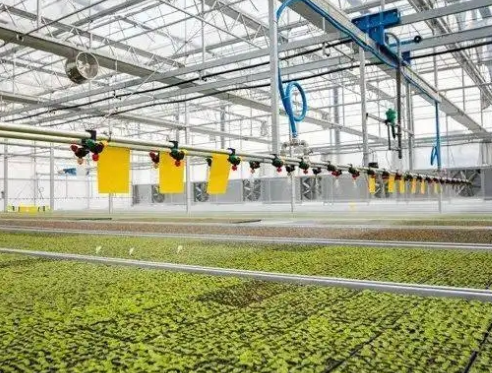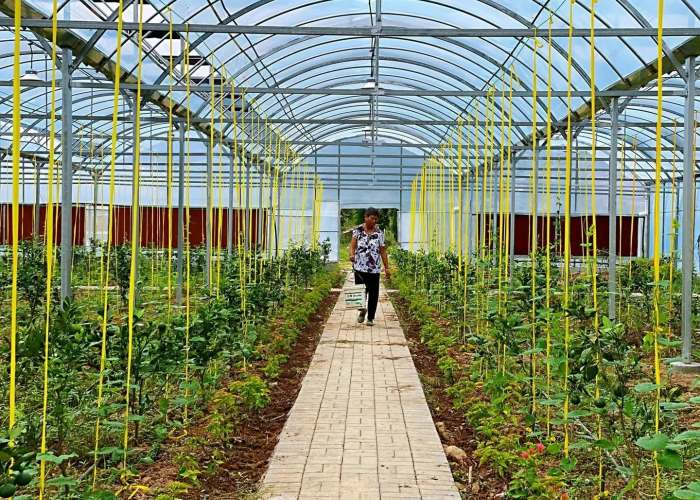Introduction
In the world of horticulture and controlled environment agriculture, the glass greenhouse has long stood as a symbol of durability, clarity, and efficiency. Whether you're a backyard grower or a commercial farmer, the decision to either build or purchase a glass greenhouse is critical. It involves more than budget considerations; it’s a multifaceted evaluation of time, customization, materials, long-term value, and operational control. This article explores the pros and cons of both building and buying a glass greenhouse, guiding you toward the most informed decision.
Building a Glass Greenhouse – The DIY Approach
Pros of Building Your Own Glass Greenhouse
Building your own glass greenhouse offers a level of personalization that no pre-built kit can match. You can tailor the size, shape, ventilation systems, and even incorporate passive solar design principles. This is especially valuable for enthusiasts who have specific crop needs or regional climate challenges.
Another advantage lies in material selection. DIY builders can choose high-quality, locally-sourced tempered glass or double-glazed panels for enhanced insulation. Additionally, self-building often results in a deeper understanding of the structure’s mechanics, making future maintenance or upgrades more intuitive and cost-effective.
From a cost perspective, if you possess the necessary construction skills and access to tools, you may save a significant amount of money on labor. For some, the hands-on process is not just about economy—it’s a passion project that yields personal satisfaction and long-term pride.
Cons of Building a Glass Greenhouse
However, constructing a glass greenhouse is not for the faint of heart. Glass is a fragile material that requires precise handling and installation. Without professional expertise, even small mistakes can lead to structural weaknesses or energy inefficiencies.
Additionally, sourcing individual parts—glass panels, aluminum or galvanized steel frames, anchors, ventilation windows—can become time-consuming and expensive. Delays due to material shortages or design miscalculations can stretch a projected two-week job into months.
Finally, obtaining the correct permits, following local building codes, and ensuring your greenhouse complies with zoning regulations can be a headache without proper guidance. These administrative hurdles are often underestimated but are crucial for legal compliance.

Purchasing a Glass Greenhouse – Convenience with Structure
Pros of Purchasing a Glass Greenhouse
Buying a pre-fabricated glass greenhouse is a practical option for those who prioritize convenience and professional design. These units are typically engineered by experts and tested for structural integrity, airflow, and insulation performance.
Purchasing a greenhouse reduces risk. With professional installers, the likelihood of errors—like poorly sealed joints or unstable frames—is minimized. Additionally, many commercial greenhouses come with warranties covering materials, frame, and glazing systems.
Time is another crucial factor. A purchased unit can be operational within a matter of days, especially when delivered as a modular kit. This is ideal for growers who want to capitalize on seasonal planting windows or commercial operations with tight timelines.
Pre-built options also often include integrated technology, such as automated roof vents, climate control systems, and shading accessories, which would otherwise require additional planning and cost during DIY construction.
Cons of Purchasing a Glass Greenhouse
Of course, buying a glass greenhouse comes with its own set of limitations. For one, customization is often limited to predefined sizes and layouts. While many manufacturers offer variations, they rarely match the flexibility of a custom DIY build.
Cost is another significant factor. While you save on time and effort, you’ll pay a premium for convenience. Larger units with integrated systems can be considerably more expensive than a similar-sized DIY build—even before factoring in shipping and installation charges.
Additionally, relocation or modification of a purchased unit is typically more difficult. You may also need to adapt your landscape to fit the structure, which could involve costly groundwork or changes to irrigation systems.
Building vs Purchasing: A Comparison Table
To summarize key points, here is a comparative table for quick reference:
| Criteria | Build Your Own Glass Greenhouse | Purchase a Glass Greenhouse |
| Cost | Potentially lower (DIY labor) | Generally higher upfront cost |
| Customization | High | Limited by manufacturer options |
| Installation Time | Weeks to months | Days to a week |
| Material Control | Full | Pre-selected by manufacturer |
| Maintenance | Easier if self-built | May need professional help |
| Technological Features | Manual installation needed | Often integrated |
| Compliance | Requires self-research | Usually pre-certified |

Frequently Asked Questions About Glass Greenhouses
Is a glass greenhouse better than plastic?
Glass greenhouses are generally more durable and provide better light transmission than plastic alternatives. While plastic options (such as polycarbonate) offer better insulation and are cheaper, they degrade faster and need more frequent replacement. Glass maintains its clarity over time, offering consistent light for plant growth.
How long does a glass greenhouse last?
With proper maintenance, a glass greenhouse can last 30 years or more. Tempered glass is particularly resilient to weather damage, and aluminum frames resist rust and corrosion better than wooden or PVC alternatives.
What’s the ideal size for a residential glass greenhouse?
For hobby gardeners, a 6x8 ft or 8x10 ft greenhouse is typically sufficient. However, those planning to grow year-round or cultivate multiple plant types may benefit from larger sizes like 10x12 ft or more, especially if walkways and storage space are considered.
Conclusion
The decision between building and buying a glass greenhouse comes down to your personal goals, skill level, and resources. If you're an experienced builder seeking a personalized structure and are willing to invest the time, DIY construction offers unparalleled control and potential cost savings. On the other hand, if you value ease of installation, time efficiency, and integrated features, purchasing a greenhouse is the safer and more convenient path.
Whether you build or buy, a glass greenhouse is an enduring investment. It extends your growing season, enhances plant health, and increases your property value. Carefully evaluating your needs and constraints will ensure your greenhouse journey is both rewarding and successful.




















